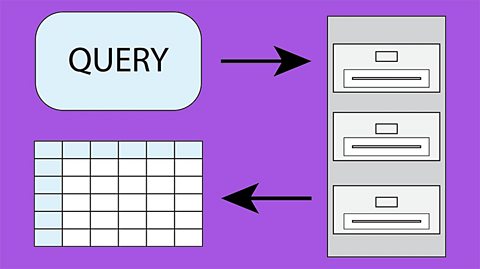Database design and development
Introducing databases
Flat file databases cause insertion, deletion and update anomalies. Use of relational databases where primary and foreign keys are used to link tables helps overcome these issues.

Analysis
Inputs, processes and outputs are identified for further design as forms, queries and reports. Specific end user needs are considered when analysing the requirements prior to database development.

Design
Designing queries and establishing a data dictionary are important. Decisions should be informed by the Data Protection Act. Entities, attributes and relationships should be clearly defined.

Implementation
Structured Query Language is used to allow database developers to generate queries and interrogate the data held in a database. SELECT, FROM, WHERE, AND and OR are key areas of SQL.

Testing and evaluation
A database is fit for purpose if it meets the end use and functional requirements. Testing queries and examining actual output against expected output helps to determine fitness for purpose.

Links
- External linkExternal link
- External linkExternal link
- External linkExternal link